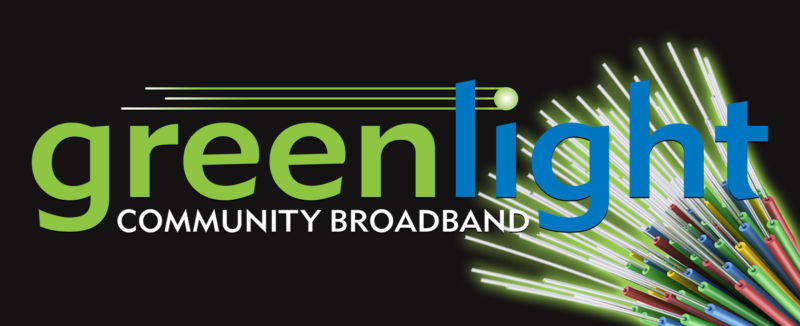
Last year, the state of North Carolina won a court case against the Federal Communications Commission, a victory that allowed it to restore a state law that restricts the growth of municipal broadband networks.
This created an immediate problem for new customers of one government-run ISP. After the FCC's 2015 vote to preempt the state law, Greenlight Community Broadband in Wilson, North Carolina, began offering service outside the Wilson County boundaries, something it previously wasn't allowed to do. Greenlight now serves about 200 customers in the nearby town of Pinetops, as well as Vick Family Farms in rural Nash County.
Greenlight came close to shutting off Internet service to those new customers after the state ban on municipal broadband expansion was upheld by a federal appeals court. But in October 2016, the Wilson City Council voted to provide free Internet service to Pinetops and Vick Family Farms for six months. Wilson's wholesale providers agreed to waive their fees for six months, making this decision possible. Wilson's Greenlight ISP was technically in compliance with the state law as long as it didn't charge its new customers for service, but Wilson community leaders hoped the state legislature would eliminate or change the state law before the six months were up.
That might be on the verge of happening. Reps. Susan Martin, R-Wilson and Jean Farmer-Butterfield, D-Wilson last week "introduced a bipartisan bill that would allow Greenlight Community Broadband to keep its existing customers outside the Wilson County lines," The Wilson Times wrote.
Narrowly written bill doesn’t address whole state
The bill text is very specific. The existing law allows Wilson to provide Internet service within the limits of Wilson County only. The new bill would add exemptions for the municipality of Pinetops and Vick Family Farms. The proposed exemption for Vick Family Farms restricts service to the farm's immediate area, thus excluding the rest of Nash County. The bill, then, only covers one town and one business customer in another town; a bill eliminating the restrictions throughout North Carolina presumably wouldn't get enough support in the state legislature.
If passed, this bill would solve the problem facing Greenlight, Pinetops, and Vick Family Farms, but the piecemeal approach could leave many people without modern broadband speeds. In rural areas especially, private ISPs would continue to face little competition and have little incentive to upgrade networks, reduce prices, or provide better customer service.
The appeals court also upheld a similar municipal broadband ban in Tennessee, where the Electric Power Board (EPB) of Chattanooga has received many requests for Internet service from residents and businesses in nearby towns. Tennessee Gov. Bill Haslam recently proposed legislation that would let private, nonprofit electric cooperatives provide broadband, but city-owned utilities like EPB still wouldn't be able to offer retail service outside their electric territories.
Nationwide, there are about 20 states with laws that restrict municipal broadband in some way, and any attempts to change them are bitterly opposed by private ISPs that don't want to face competition from government-run networks.
Listing image by Steve Johnson.
Listing image by Steve Johnson / Flickr
reader comments
36